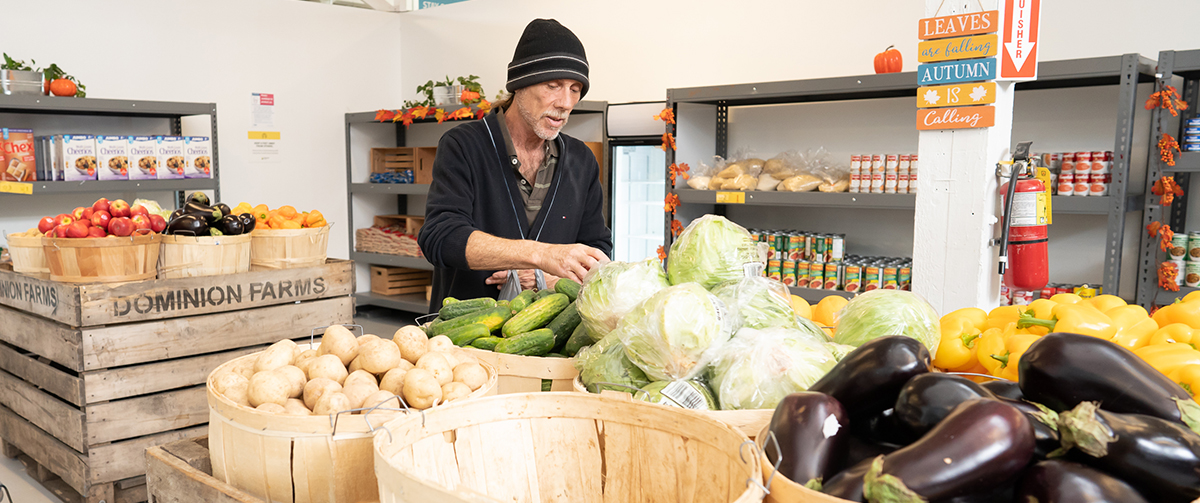
Food banks emerged in the 1980s as an immediate response to an economic recession. Daily Bread Food Bank will be 40 years old this year, and many others have been serving local members of their communities for as long. Except for some emergency funding during the pandemic, Daily Bread Food Bank (and many others) does not receive government funding.
The need for food banks is clear, and it’s growing at unprecedented rates. Daily Bread has just passed 2.07 million visits over the past 12 months and broke a new monthly record in January with 209,773 visits across the city.
Food banks are a critical stopgap for most people. Clients turn to food banks once they have run out of other options and Member Agencies are experiencing unprecedented levels of strain due to this demand.
As the need for food banks continues to rise to record breaking levels due to stagnant incomes, unaffordable housing, precarious labour and a frayed social safety net, what would happen if food banks simply did not exist? What would people do?
So, we asked food bank clients what supports they would rely on if there were no food banks, and two out of three food bank clients said they would have nowhere to go.
As for consequences, the most significant impact was on people’s housing. Forty-two percent (42%) of clients told us they would not be able to pay their rent. This finding underlines the role of food banks in preventing eviction and homelessness.
Here are some of the powerful stories that clients shared with us:
Food insecurity is a problem of poverty, caused by low incomes and high housing costs. Although food banks are designed to provide emergency food relief, food security cannot be outsourced to charity – governments bear this responsibility.
Daily Bread Food Bank calls on all orders of government to enact strong policies to tackle the systemic root causes of food insecurity through decent work, affordable housing, and a strong social safety net.
Click here to read the full Click/Hear Report for a deeper dive into the stories of clients and for in depth policy recommendations on how to realize the right to food in our communities.